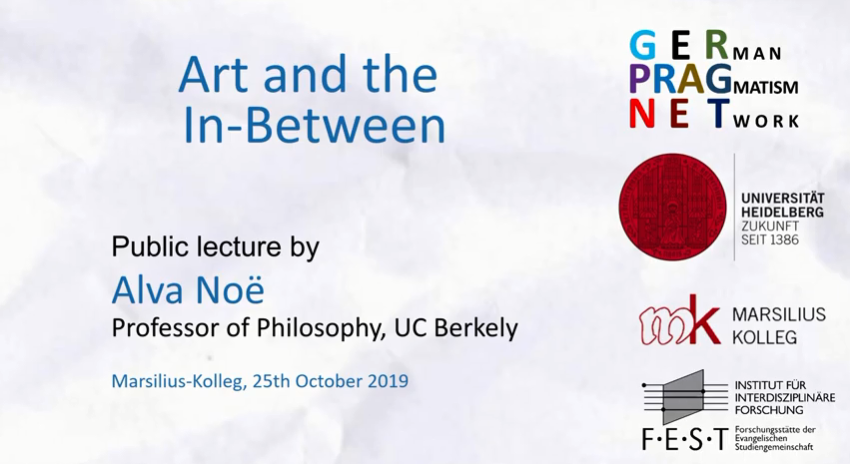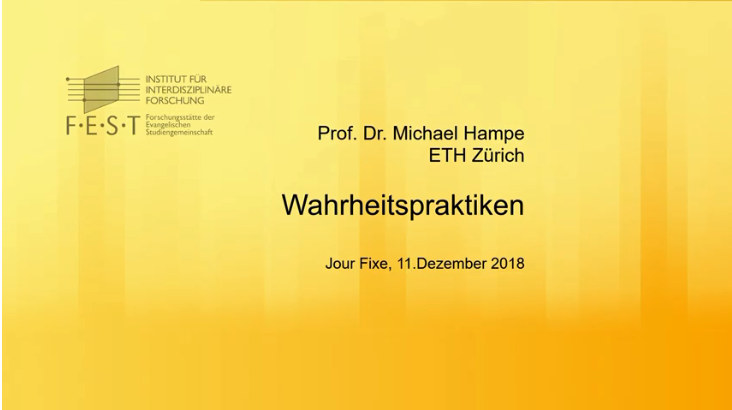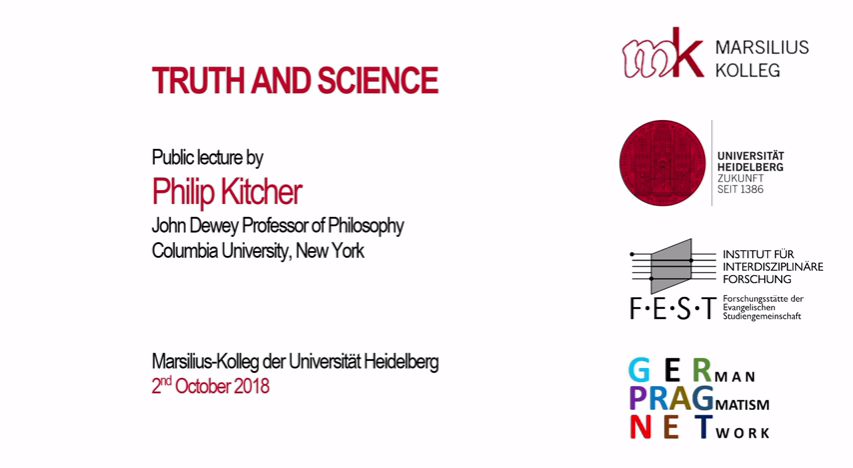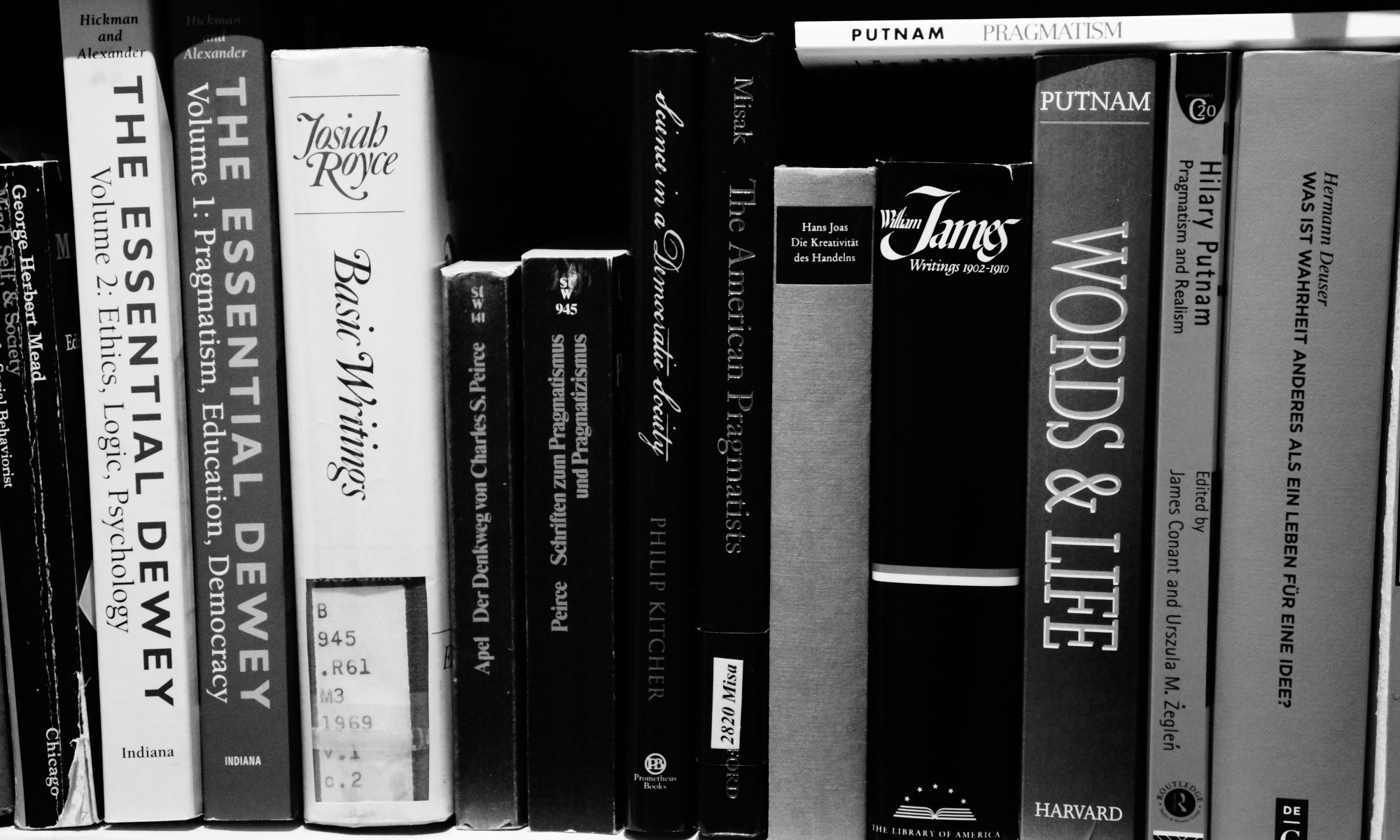Lecture by Prof. Dr. Alva Noë (UC Berkeley) at FEST Heidelberg: „Art and the In-Between“, 25th October 2019:

(By clicking on the picture you will be redirected from gerprag.net to Youtube)
Alva Noë is a writer and a philosopher living in Berkeley and New York. He works on the nature of mind and human experience. His latest book is Infinite Baseball: Notes from a Philosopher at the Ballpark (Oxford University Press, 2019).
Alva received his Ph.D. from Harvard in 1995 and is a professor of philosophy at the University of California, Berkeley, where he is also a member of the Institute for Cognitive and Brain Sciences and the Centerfor New Media.
Lecture by Prof. Dr. Michael Hampe (ETH Zürich) at FEST Heidelberg: „Wahrheitspraktiken“, 11th December 2018:

(Beim Klicken auf das Bild werden Sie zum Video auf Youtube weitergeleitet)
Es ist ein Charakteristikum moderner kritischer Philosophie, die Begriffe der absoluten Wahrheit und der absoluten Gewissheit in Frage zu stellen. Doch darf daraus nicht der Schluss gezogen werden, wir wüssten nicht, was wahr sei. Tatsächlich verfügen wir über eine Reihe von bewährten Praktiken der Überprüfung von Behauptungen hinsichtlich ihres Wahrheitsgehaltes. Die Relevanz dieser Praktiken ist unabhängig von einer allgemeinen philosophischen Wahrheitstheorie. Wegen der politischen und kulturellen Bedeutung von Wahrheiten, die weit über die Bedeutung dieses Begriffs in den Wissenschaften hinausgeht, ist es wichtig, die Relevanz und das Funktionieren dieser Wahrheitspraktiken anzuerkennen und aus dem Scheitern allgemeiner philosophischer Wahrheitstheorien nicht die falschen Konsequenzen zu ziehen.
Lecture by Philip Kitcher at Marsilius-Kolleg: „Truth and Science“, October 3rd, 2018:

(By clicking on the picture you will be redirected from gerprag.net to Youtube)
The erosion of trust in the sciences raises three important questions.
1. Does scientific inquiry deserve the status it once enjoyed in democratic societies as a privileged source of truth?
2. What has happened to undermine its status in some areas of science and among some people?
3. If the turn against scientific authority is a mistake, what can be done to remedy it?
Philip Kitcher will use the case of climate change (and climate inaction) to illustrate answers to the first two questions, and conclude with some brief reflections on the third.
